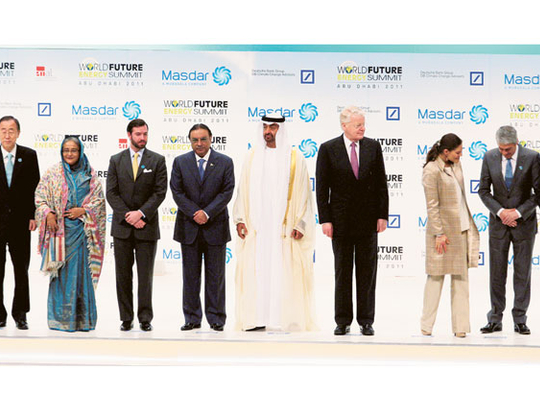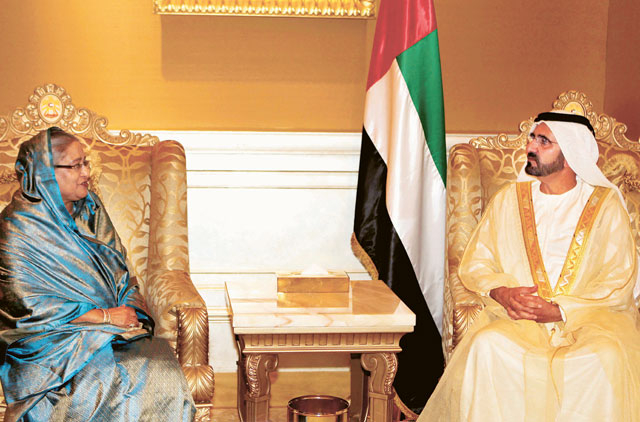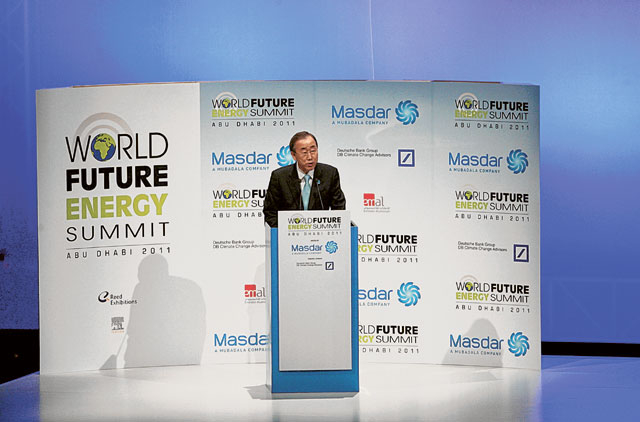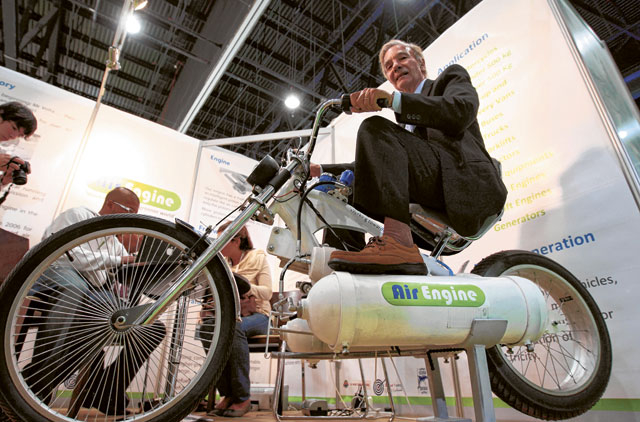
Abu Dhabi: The opening ceremony of the fourth World Future Energy Summit yesterday saw a strong international presence as global leaders from both developed and developing nations expressed their commitment towards developing clean, renewable energy for future generations.
Opened by the chief executive officer of Masdar, Dr Sultan Ahmad Al Jaber, and a keynote address by United Nations Secretary-General Ban Ki-moon, the summit at the Abu Dhabi National Exhibition Centre is being attended by 33 official delegations and 3,000 delegates.
The four-day event will see industry professionals, government leaders, academicians and environmental enthusiasts discussing the progress made in using biofuels, hydropower, wind energy, solar power, electricity and other alternatives as of future energy sources.
In his opening address, Ban Ki-moon highlighted the need for what he termed a "global clean energy revolution" because of the worldwide rise in energy demand.
"In the next 20 years, global energy demand is expected to rise by 20 per cent [from current consumption], mostly in developing countries where 1.6 billion still lack access to electricity and 3 billion rely on traditional biomass fuels for cooking, heating and other basic household needs," Ban told the audience.
He added that the challenge was to make renewable energy available and affordable for all.
"This is essential for minimising climate risk, reducing poverty…and ensuring global economic growth, peace and security," Ban said. He said that governments had achieved good progress on climate change last month in Cancun, Mexico, including developing a mechanism to share green technologies. They had also agreed on a financially-backed action plan to reduce annual deforestation, which leads to one-fifth of all carbon emissions.
Ban added that much more, however, had to be done to achieve the targets set by an advisory group he established on energy and climate change.
Achieving these targets will require annual outlays of $35 billion (Dh128 billion) for 20 years. "This sounds like a lot but it is merely 3 per cent of projected global energy investment over the same period," Ban explained.
National achievements and challenges from some world leaders in attendance.
- Pakistan would have to grow at an annual rate of 8 per cent so that its citizens can maintain their current standard of living. Its current energy capacity of 20,000 mega watts must also double within a decade.
- Bangladesh's emission of greenhouse gases is nearly negligible but it are one of the worst victims of climate change. In fact, a metre-rise in sea level could submerge a fifth or our country and displace 30 million people.
- Only 18 per cent of our renewable energies are being utilised so far, so we can contribute to global energy security. In fact, 90 per cent of our electricity consumption comes from green energy sources.















